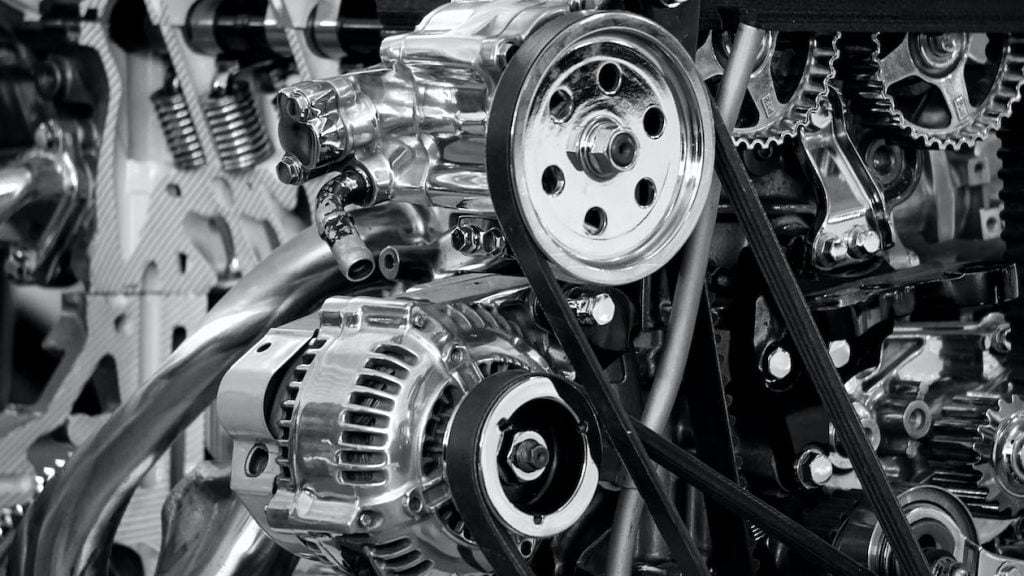How to Stop an Engine from Overheating: Tips for Preventing Catastrophic Damage



How to Stop an Engine from Overheating: Tips for Preventing Catastrophic Damage
Your vehicle’s engine is the heart of your car, and when it starts to overheat, it can be a stressful and potentially costly situation. Engine overheating can lead to severe damage, leaving you stranded on the side of the road with a hefty repair bill. However, with the right knowledge and preventative measures, you can not only stop an engine from overheating but also avoid this problem altogether. In this comprehensive guide, we will delve into the causes of engine overheating, step-by-step instructions on how to cool it down in an emergency, and essential tips for preventing overheating in the future.
Understanding the Causes of Engine Overheating
Understanding the Causes of Engine Overheating
Before we explore the steps to stop an overheating engine, it’s crucial to understand what can lead to this troublesome situation. Engine overheating can occur due to several factors, including:
1. Insufficient Coolant
1. Insufficient Coolant
Low coolant levels or coolant leaks can reduce the engine’s ability to dissipate heat effectively. Coolant is vital for maintaining the engine’s temperature within the optimal range.
2. Cooling System Problems
2. Cooling System Problems
Issues within the cooling system, such as a malfunctioning water pump, a blocked radiator, or a malfunctioning thermostat, can impede the flow of coolant and disrupt the engine’s ability to regulate its temperature.
3. Faulty Thermostat
3. Faulty Thermostat
The thermostat plays a crucial role in regulating the flow of coolant through the engine. A malfunctioning thermostat can lead to improper temperature regulation and cause the engine to overheat.
4. Engine Overexertion
4. Engine Overexertion
Pushing your vehicle to its limits, such as towing heavy loads in high temperatures, can strain the engine and lead to overheating. It’s important to operate your vehicle within its recommended capacity.
Steps to Stop an Overheating Engine
Steps to Stop an Overheating Engine
When you find yourself in the unfortunate situation of dealing with an overheating engine, it’s essential to take immediate action to prevent further damage. Follow these steps to stop an overheating engine:
1. Pull Over Safely
1. Pull Over Safely
As soon as you notice your engine overheating, safely maneuver your vehicle to the side of the road or a parking lot. Turn off the engine and put the vehicle in park (for automatic transmissions) or neutral (for manual transmissions). Do not attempt to continue driving with an overheating engine, as it can lead to catastrophic damage.
2. Open the Hood
2. Open the Hood
Allow the engine to cool down by opening the hood. This will help dissipate heat more rapidly. However, exercise caution and do not attempt to touch any hot engine components.
3. Turn Off the A/C and Heater
3. Turn Off the A/C and Heater
To reduce the workload on the engine and prevent further overheating, turn off the air conditioning and heater.
4. Check the Coolant Level
4. Check the Coolant Level
Carefully inspect the coolant reservoir to ensure it contains an adequate amount of coolant. If the level is low, wait for the engine to cool before adding more coolant. Be sure to use the manufacturer-recommended coolant type.
5. Inspect for Leaks
5. Inspect for Leaks
Look for signs of coolant leaks under the vehicle. Leaks can contribute to overheating and should be addressed promptly. If you notice a significant coolant leak, it’s best to seek professional assistance.
6. Call for Assistance
6. Call for Assistance
If you’re unable to identify the cause of the overheating or if the temperature gauge remains in the red zone after taking the above steps, it’s best to call for roadside assistance or a tow truck. Attempting to drive an overheated vehicle can lead to severe engine damage.
Tips for Preventing Engine Overheating
Tips for Preventing Engine Overheating
While knowing how to stop an overheating engine is essential, preventing it from happening in the first place is even more crucial. Here are some valuable tips to help you avoid the nightmare of an overheating engine:
1. Regularly Check Coolant Levels
1. Regularly Check Coolant Levels
Monitor your vehicle’s coolant levels regularly, especially before long trips. Top up the coolant reservoir as needed, and be sure to use the manufacturer-recommended coolant type.
2. Maintain the Cooling System
2. Maintain the Cooling System
Schedule regular maintenance checks to ensure that the cooling system is in good condition. This includes inspecting the radiator, water pump, hoses, and belts for any signs of wear or damage. Replace any worn or damaged components promptly.
3. Replace the Thermostat
3. Replace the Thermostat
If you notice any irregularities in temperature regulation, have the thermostat inspected and replaced if necessary. A properly functioning thermostat is essential for maintaining the engine’s temperature.
4. Service the Radiator
4. Service the Radiator
Consider regular radiator flushes and cleanings to prevent the buildup of debris and sediment that can impede coolant flow. A clean radiator is more efficient at dissipating heat.
5. Use Proper Engine Oil
5. Use Proper Engine Oil
Ensure that you’re using the recommended engine oil for your vehicle, as it plays a crucial role in regulating engine temperature. Engine oil helps lubricate engine components and dissipate heat effectively.
6. Avoid Overexertion
6. Avoid Overexertion
Avoid pushing your vehicle beyond its recommended capacity, especially in extreme temperatures. Excessive strain on the engine can lead to overheating. If you need to tow heavy loads or travel in hot weather, take breaks to allow the engine to cool down.
7. Monitor Temperature Gauges
7. Monitor Temperature Gauges
Stay vigilant and keep an eye on your vehicle’s temperature gauges while driving. If you notice any unusual fluctuations or the temperature gauge approaching the red zone, take immediate action to cool down the engine.
In Conclusion
In Conclusion
Dealing with an overheating engine can be a nerve-wracking experience, but with the right knowledge and preventative measures, you can minimize the risk and keep your vehicle running smoothly. Understanding the causes of engine overheating, knowing how to stop it in an emergency, and implementing preventative measures are essential for every vehicle owner.
Regular maintenance, attention to your vehicle’s cooling system, and responsible driving practices can go a long way in preventing engine overheating and ensuring a safe and reliable driving experience. By following these guidelines, you can enjoy the peace of mind that comes with a well-maintained and properly cooled engine.








